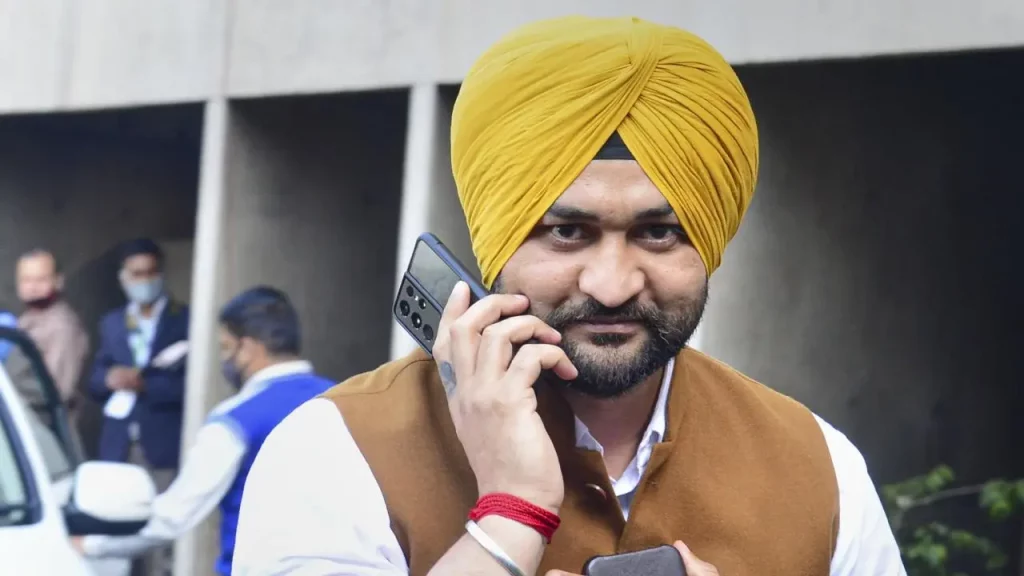In India, like in many other countries, sexual harassment in sports is a widespread problem. Despite laws and regulations in place to address this issue, there has been a lack of enforcement and accountability, resulting in a culture of impunity. This has led to a lack of trust in the reporting process and a reluctance of victims to come forward, which has made it difficult to address the problem effectively.
As the country cheered on our sportswomen for their incredible talent and tenacity in international contests, it now appears that these extraordinarily brilliant women have been quietly waging another struggle—against a brutal nexus of patriarchy, power, and privilege.
The fact that Sandeep Singh, the minister in Haryana accused of sexual harassment by the wrestler, and Brij Bhushan Sharan Singh, the head of the Indian Wrestling Federation, who is facing serious allegations of a similar nature, are both still in office should put any doubts about the connection to rest.
According to reports, while the former has reportedly relinquished control of the relevant portfolio, the other has reportedly been instructed to “stand aside” and will not take part in decision-making.
It is important to note that a committee led by the additional director general of police (Rohtak Range), Mamta Singh, the deputy commissioner of police in Panchkula, Sumer Pratap Singh, and the additional commissioner of police in Panchkula, Raj Kumar Kaushik, has been established to conduct an investigation into a complaint made by the accused minister. Singh is still in control of the printing and stationery division, though. Manohar Lal Khattar, the chief minister of Haryana, would have us think that this would not influence the probe.
The juvenile athletics coach who filed the complaint against Singh is also a 400-meter national-level competitor. She was sent to Jhajjar, where she said there were no facilities for her sport. Both the Haryana episode and the Wrestling Federation incident have been covered in articles that mention the national honours and public standing the accused have received.
Despite efforts to quell the demonstrations, this continues to be the case. As they train for major athletic events, athletes only want to respect themselves. The WFI’s predatory behaviour has put pressure on people seeking justice, but champion wrestler Vinesh Phogat has said, “We won’t bog down anymore and will fight for our rights.”
It takes a great deal of bravery for sportswomen to come out and expose the sexual harassment loop inside the sports establishment, especially when they are supported by their male teammates, as in the instance concerning the WFI. Such accusations pose a challenge to the links that have developed between the corporate sector, politicians, and the sports bureaucracy.
A comprehensive examination of the filed complaints is required. That is essential if those who might be quietly suffering can find the strength to speak up. The legislation requires that mechanisms be immediately put in place to deal with such concerns. These are necessary at all levels, including those for administrative work, training, selection procedures, rewards, and talent searches.
Transparency and accountability, particularly in resolving allegations of sexual harassment, including the acts or inactions of those holding authorities and responsibility for conducting inquiries into complaints, are critically needed to inspire trust in the players and attract new talent. A person in a position of responsibility who does nothing in response to a report of sexual harassment is also in violation of the law. It is necessary to respond to instances of sexual harassment by imposing exemplary punishment.
It is unlawful for ministers and other high-ranking individuals to hold their posts when, in accordance with the law, they have been charged with offences that contain non-bailable sections. Governments and people in charge of these organisations must be held accountable.
Finally, there is a need for more openness in the decision-making processes. This also covers nationwide talent searches, training, prizes, and selection. Eminent athletes must step up to start these processes in order to boost public trust, especially among women who have made significant contributions to the successes in this field.
The women’s movement in India has long claimed that in order for women to achieve equality and equality of opportunity, violence—particularly sexual violence, of which sexual harassment is a major aspect—must be addressed across a spectrum of socio-political institutions. Such instances cannot be seen as isolated occurrences, with political calculations weighing down delayed reactions.
While movements like #MeToo help many women speak up for themselves, many continue to get away with it due to the lack of action and abdication of leadership at the top. Employees and women are entitled to a workplace free from discrimination due to sexual harassment, which fosters a hostile work environment, as the Supreme Court of India said in the Vishaka Guidelines.
Women in sports in India are at least entitled to an equal chance and a fair playing field if we want them to represent our nation with distinction, even while they compete under intense pressure while up against patriarchy and discrimination.
One is reminded of an event from 1998 when Rupan Deol Bajaj, an Indian Administrative Service official, stood up against senior police officer K.P.S. Gill in defence of the rights and reputation of the accused. A top editor at the time famously stated that India as a country “does not know how to honour its heroes.” Bajaj pursued her case in court, where she was successful in 2005.
One can only conclude that modern India lacks the ability to protect its heroines, let alone honour them. But to combat this issue, it is important for sports organizations to have clear policies in place and for there to be a concerted effort to raise awareness about sexual harassment and provide support for those who have experienced it. It is also crucial for there to be consequences for perpetrators and a zero-tolerance approach to any form of abuse.
